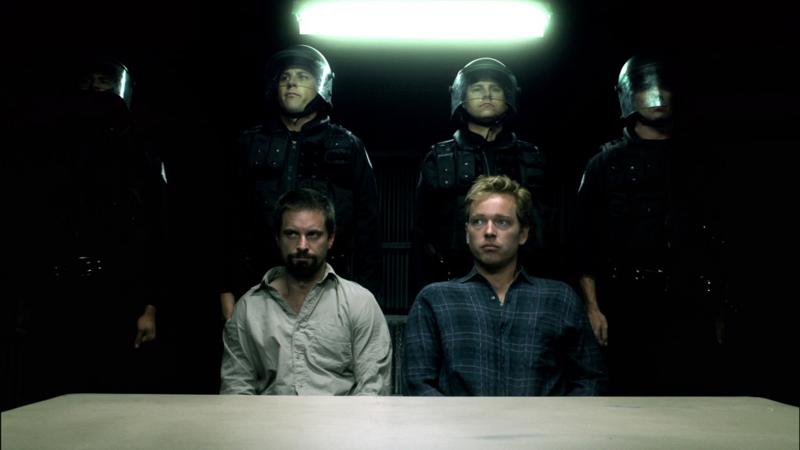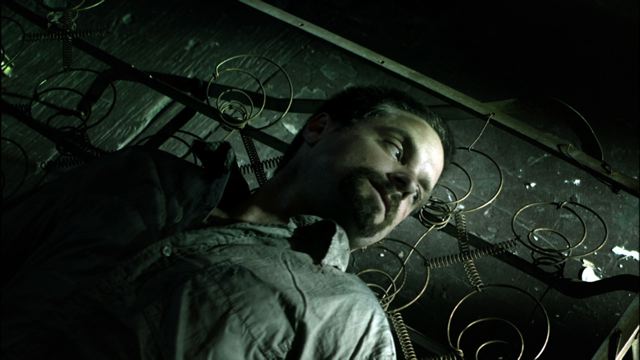
Between February and March 1974, renowned science fiction author Philip K. Dick experienced a series of bizarre occurrences (summarised here in graphic form by the legendary R. Crumb) which as far as he was concerned constituted a direct communication from either God, an alien intelligence, or both. Experiencing visions of the ancient past (specifically 1st century Rome), xenoglossy (he suddenly – if temporarily – spoke ancient Greek without any prior knowledge of it) and premonitions (he became aware of a potentially fatal medical condition afflicting his son which doctors had missed), Dick became convinced that he had encountered something, whether it was an actually existing deity or just a product of his subconscious. He spent the rest of his life (which sadly ended in 1982) trying to figure out exactly what had happened to him, both through his 8,000 page, stream-of-consciousness Exegesis as well as several semi-autobiographical novels written in the last few years before his death. The most famous of these is 1981’s VALIS (which along with its direct sequel The Divine Invasion and Dick’s final book The Transmigration of Timothy Archer forms a thematic trilogy), an earlier (and radically different) draft of which was published after the author’s death under the title Radio Free Albemuth.
Given the bizarre, blasphemous and fantastical subject matter of these works, it’d be a bold film-maker that attempted to adapt of any one of them, but in 2007 writer/director John Alan Simon began work on a low-budget version of Albemuth, despite also having the film rights to the more famous (if no less esoteric) VALIS. The result is an extremely mixed bag, neatly illustrating the potential pitfalls of adapting ‘unfilmable’ novels while at the same occasionally showcasing the virtues of overambition.

The film’s central plot closely follows that of the book: set in an alternate version of California in the 1980s (updating the novel’s setting by a decade), Radio Free Albemuth chronicles the life-changing experiences of record store clerk Nicholas Brady (Jonathan Scarfe) and his best friend, the science fiction writer Philip K. Dick (Boardwalk Empire‘s Shea Whigham). While President Richard Fremont (Scott Wilson) and his secret police rule America with an iron fist, Brady begins to experience visions of a godlike alien intelligence named VALIS (an acronym for Vast Active Living Intelligence System) which seems to be downloading information directly into his brain as part of some larger, unknown master plan. With the help of Dick and a strange woman called Sylvia (Alanis Morissette), Brady sets in motion a chain of events designed to topple Fremont’s dictatorship and liberate America, but does VALIS really exist or is he simply going insane? And even if there is an alien god pulling his strings, does Brady’s plan have any real chance of success?
The plot synopsis alone gives some indication of the left field nature of Radio Free Albemuth and the ideas it explores. As with the book, one of the most interesting things about the film is the inclusion of Dick himself as a character, although not the character who experiences the visions that plagued his real-life counterpart. These and other events from the author’s life are mixed in with his fictional creations, and it’s often hard to see where the line might lie between (perceived) fact and fiction, even though the the story depicts an alternate universe to our own. This is the way in which Dick tried to process and analyse his uncanny experiences through his work (a blending of fiction and autobiography also occurs in VALIS, and to a lesser extent in The Transmigration of Timothy Archer), and John Alan Simon’s film remains faithful to the author’s intent on this score.

The premise of Albemuth is so peculiar that it asks a lot of its audience, so much so that viewers who aren’t fans of the book might not be willing to overlook its weirder elements and obvious flaws. While some of the story’s themes resonate powerfully, such as comparing the contemporary USA to the empire of ancient Rome and exploring the life-shattering experience of being a deity’s ‘chosen one’, its depiction of VALIS and the rest of Brady’s visions come across as frankly ridiculous, especially when hamstrung by a miniscule effects budget. Despite the tantalising backdrop of a totalitarian America where citizens are expected to provide “loyalty statements” for each other, these theological explorations actually form the heart of the story, just as Dick intended, so when they fall short the whole film is dragged with them. There are times when the film’s low budget works in its favour; the lack of Hollywood gloss paradoxically lends a pronounced air of unreality to certain scenes that are rendered all the more effectively for it. For the most part, though, the lack of funding is a definite hindrance, as one would expect.
Sometimes a talented cast can, by sheer force of acting, elevate a ropey movie out of its low-budget quagmire. Radio Free Albemuth is, in this respect, a qualified success. Jonathan Scarfe puts in a credible, if unremarkable performance in the lead role, and while Alanis Morissette isn’t actually much of an actor she does have that desirable actorly quality of being interesting to look at (different from simply being attractive). The film’s secret weapon, though, is Shea Whigham’s terrific performance as Philip K. Dick, and the movie lights up every time he’s on the screen. Whigham plays Dick as skeptical, sarcastic and defiant, but also ultimately passionate and caring, equally at home in the film’s more philosophical moments as he is its darkly humorous scenes. Simon’s mooted adaptation of VALIS would be worth watching just to see Whigham reprise the role.

In a way it’s fitting that Philip K. Dick should be the character portrayed most memorably, as ultimately, despite it’s pretensions of paranoid political and religious allegory, Radio Free Albemuth is all about one man’s personal struggle to understand an incomprehensible experience. For some reason, the story’s inherent strangeness works far better on the page than on the screen, and this might say something about how we as viewers experience storytelling in different media. Despite being a pretty mediocre film, Albemuth does have some fantastic moments, and indeed the whole final act is as brutal, haunting and bittersweet as any fan of the book could hope for. Some may well watch it and ask why John Alan Simon even attempted to adapt a novel so wilfully unfit for the screen, but his excess of ambition brought forth a movie that is often thought-provoking and occasionally very moving, and that surely is worth the effort.
The film’s official website can be found here.
